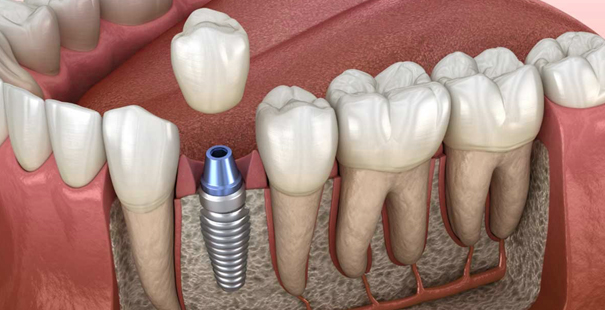
Permanent Dental Implants for a Lasting Smile
Consider All The Benefits
Are you missing teeth? Whether it's one, several, or all of them, dental implants can help you restore a complete and beautiful smile! The popularity of dental implants is on the rise, with approximately 3 million people already having received them and the number growing by 500,000 each year. This is because dental implants offer numerous benefits compared to other methods of care.
While traditional fixed bridges and dentures are effective solutions for replacing missing teeth, dental implants have several advantages:
- Dental implants are designed to closely mimic the appearance, sensation, and functionality of natural teeth.
- With proper placement, oral hygiene, and regular maintenance, dental implants have the potential to last for many years.
- Dental implants help to stimulate the underlying bone, preventing bone loss and maintaining natural facial contours.
- Unlike removable dentures, dental implants function like natural teeth and remain secure while speaking or eating.
- Dental implants allow for comfortable speaking, eating, and enjoying a variety of foods without limitations.
- Dental implants are resistant to decay and cavities.
- Unlike fixed bridges, dental implants do not require any alteration or crowning of neighboring teeth.
Types Of Dental Implants
Single-tooth Implant
Implant-supported Fixed Bridges
Full Arch Replacement With Four Or Six Implants
Implant-retained Denture
Implant-supported Dentures
Are Dental Implants Right For Me?
How Are Dental Implants Placed?
It is important to carefully plan and carry out each step of dental care, from the initial treatment plan to the precise placement of dental implants and the creation and insertion of final crowns, bridges, or dentures.
Dental implant surgery is usually a minor outpatient procedure, but the complexity of the procedure depends on the type and number of implants needed and any additional preparations required for the supporting bone.
Communication is a top priority in patient care. Before your dental implant surgery, we will discuss dental anesthesia, sedation options, and provide detailed instructions for pre- and post-operative care. Our office will keep you informed throughout the entire process.
After a dental implant is placed, it takes a few months to fully integrate with the surrounding bone. Some implant solutions allow for the placement of a temporary crown or bridge on the same day, while others require waiting for complete healing and fusion with the surrounding bone before permanent prostheses can be placed.